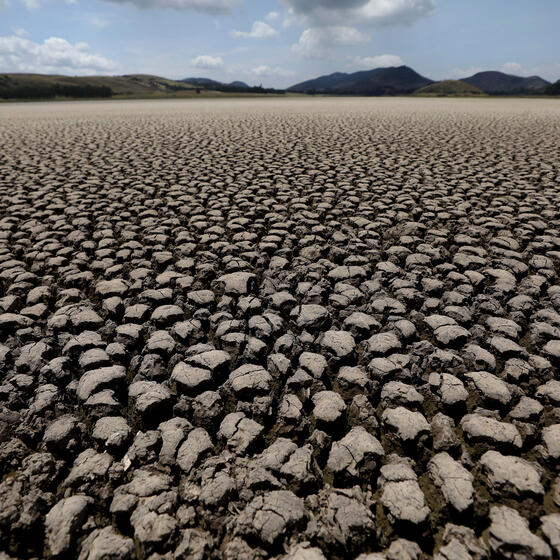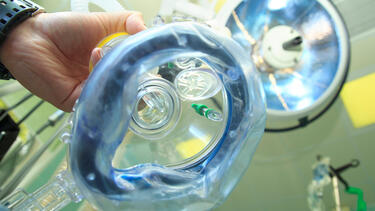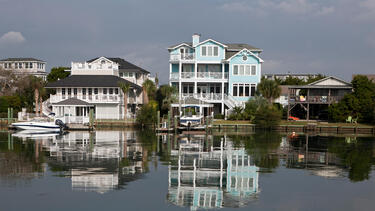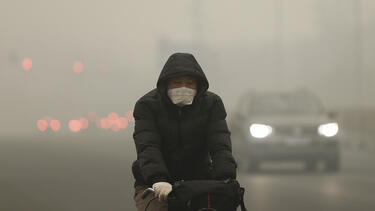Sustainability
Are Companies Abandoning Climate Action?
Last week, Bloomberg reported that mentions of climate change and other environmental topics in corporate earnings calls have dropped by 75% since they peaked three years ago. We asked Yale SOM’s Todd Cort what the change of emphasis says about the state of corporate sustainability efforts.

Better Data Is Letting Companies and Investors See Trillions in Climate Risk
A growing pool of ESG data enumerates companies’ exposure to climate risk. Yale SOM’s Todd Cort explains how the data helps investors target capital toward the companies that are responding.

Uncovering Healthcare’s Hidden Climate Impact
The healthcare industry produces 8.5% of all U.S. greenhouse gas emissions as well as other forms of air pollution. Yale's Dr. Jodi Sherman says the first step to making healthcare sustainable is to understand the scope of the problem.

What Does It Take to Create Financial Products That Can Save the Planet?
Investors are increasingly eager to contribute to solutions for climate change and other environmental problems. Charlotte Kaiser ’07 of The Nature Conservancy’s NatureVest explains how the company builds financial products that attract mainstream capital while delivering conservation impacts.

How Trust Can Power Renewable Energy
Lily Donge ’97 talked with us about how building trust is critical for any kind of real innovation—and how it’s helped her develop new models for scaling renewable energy.

How Patagonia Learned to Act on Its Values
Vincent Stanley, Patagonia’s company philosopher, chronicles the company’s efforts to bring environmental and social values to the heart of what the company does.

Study: Rising Seas Aren’t Causing Coastal Property Values to Decline
Climate change is causing sea levels to rise, threatening expensive waterfront properties. But according to a new study co-authored by Yale SOM’s Matthew Spiegel, prices are not falling in the areas most likely to be affected.

Skilled Workers Flee from Polluted Cities, Hampering Economic Growth
In China, highly educated people are more likely to move away from areas with poor air quality. Reducing pollution could substantially increase GDP there and in other countries, according to a new study co-authored by Yale SOM’s Mushfiq Mobarak.

California’s Path to a Carbon-Neutral Grid
Elliot Mainzer ’98, CEO of CAISO, explains how California is working to avoid another summer of blackouts even as the state transitions to a carbon-neutral grid.

Maintaining Momentum on Climate Change
Tyler Van Leeuwen ’14 of Shell explains explains how his internal skunkworks team helps move Shell toward its decarbonization goals.

To Tackle Plastics Pollution, Embrace a Circular Economy
To cut down on plastics pollution, says Matt Kopac ’09, sustainable business and innovation manager at Burt’s Bees, we need a fundamentally different approach to sustainability.
